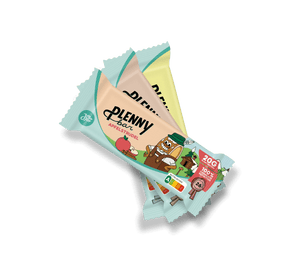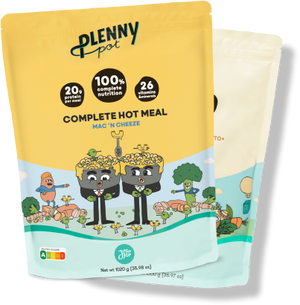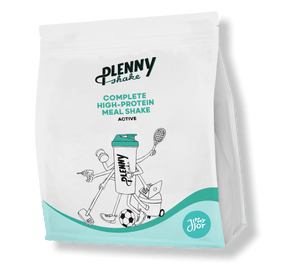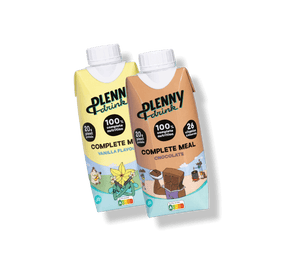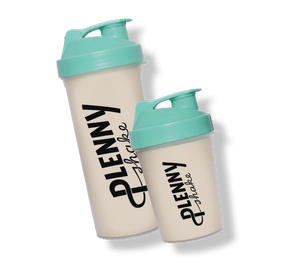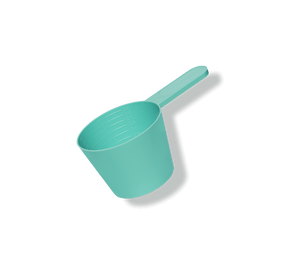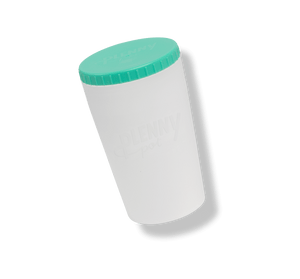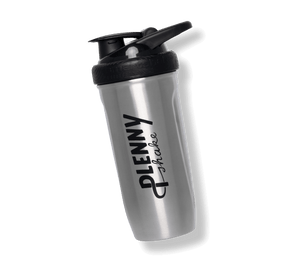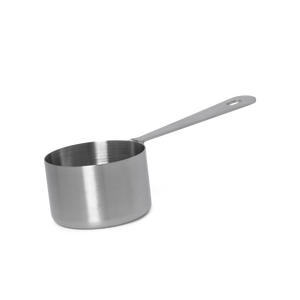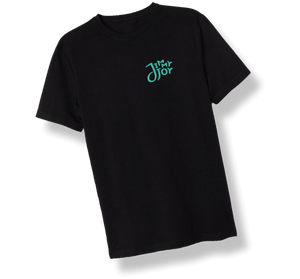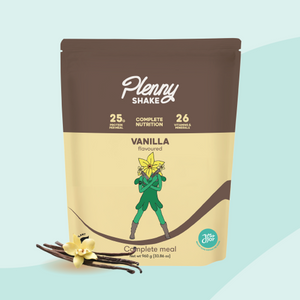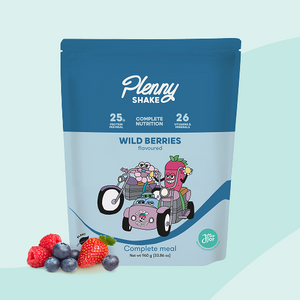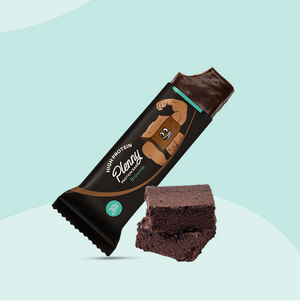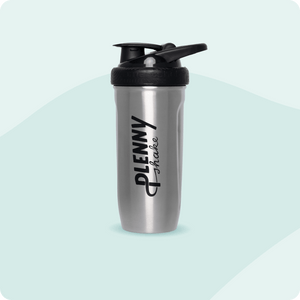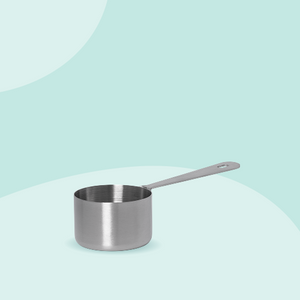Don’t freak out, but there’s a pretty good chance you have some animal-based products lying around the house that you weren’t aware of.
You can find animal ingredients in the products you use to wash your clothes, wash your hair, and brush your teeth - you can even find them in your electronics! (1)
Take a look at these 15 surprising everyday products with hidden animal ingredients in them, or go to the list of animal ingredients for a complete overview.
- Wine, beer, and cider
- Orange Juice
- Sugar
- Bread and bagels
- Chewing Gum
- Razors
- Condoms
- Toothpaste
- Shampoo and conditioner
- Make-up
- Medication
- Shopping bags
- Electronics
- Fabric softener
- Mustard
Wine, Beer, and Ciders: Fish Bladders
Prepare yourself… Because many alcoholic beverages, such as wine, beer, and cider are not actually vegan. Worse still: they’re not even vegetarian!
*GASP*
Is there nothing holy?!
Isinglass is semi-transparent gelatin that’s made from fish bladders (3). And It’s quite often used as a clarifying agent for beers, wines, and ciders.
By the way, it’s not just isinglass; whey, lactose, casein, and carmine are just some examples of animal-derived ingredients that are commonly used during beer and wine production. (4)
Unfortunately, these ingredients aren’t always listed on the label. That’s because, legally, they don’t have to be.
If you want to be sure you’re making the right choice, look for drinks that contain the ‘vegan’ symbol on the label, or contact the manufacturer.

Orange Juice: Fish Oil
Hmm, there’s definitely something fishy going on here... It turns out that some of the OJ’s out there are not vegan. Or even vegetarian!
For example, Tropicana’s ‘Healthy Heart’ orange juice contains added fish oil and lists sardine, anchovy, and tilapia on the label. (5)
Fruit juices sometimes contain added ingredients for flavour, colour, shelf life, or health benefits (6), and there’s no denying omega 3 is good for your heart and reduces the risk of cardiovascular disease.
But mixing orange juice with fish??
You’d be better off with a nutritionally complete drink, like this one.
It’s a source of omega 3 and not just good for your heart: one drink of 330 ml has 172 scientifically proven health benefits for physical and mental fitness.
Plus: it’s 100% vegan, so no fishiness!

Sugar: Bone Char
Bone char is sometimes used by sugar manufacturers as a decolorizing filter to give sugar its snowy white colour (7).
And yes, bone char is exactly what it sounds like: charred animal bones.
Brown sugar isn’t necessarily better by the way: it’s often made by simply adding molasses to the refined white sugar.

Bread & Bagels: L-cysteine
Pizza, bagels, pizza bagels - who doesn’t love them.
But the dough used for your favourite late-night snacks might be treated with L-cysteine.
L-cysteine is an amino acid used to prolong the shelf-life of dough and to make it more pliable to work with. [8] That doesn’t sound too bad, does it?
But here’s the kicker: L-cysteine is mainly sourced from bird feathers, hog’s hair, and - wait for it - human hair. (9)
Yikes…

Chewing Gum: Lanolin
*Warning* are you chewing gum right now? Because you might want to take it out for this...
You probably never wondered what skincare products and chewing gum have in common, but the answer is lanolin. (10)
Lanolin is a waxy substance secreted by sheep to keep their wool water-repellent and in good, healthy condition.
Lanolin is especially popular in skincare products because of its hydrating qualities, softening the skin.
And just like how it softens up the skin, it's also used to keep chewing gum soft and supple.

Razors: Glycerin
Wait, razors aren’t vegan? Unfortunately, no.
You know that lubricant strip that many disposable razors have for a smoother shave? Well, that strip is often made with lanolin and/or glycerin. (11)
And much like lanolin, which we discussed here, glycerin (also known as glycerol) is an ingredient that’s commonly derived from animal fats (tallow).
But glycerin can also be created synthetically or be derived from plants, so if you want to make sure your razors are vegan-friendly be sure to contact the manufacturer.

Bonus tip: glycerin is also often used as a humectant, solvent, and sweetener in food products. If not stated in the label as glycerin or glycerol, it’s labeled as E422, so keep an eye out for it.
Condoms: Glycerin
Who’d’ve thought...
The majority of condoms and lubricants on the market contain animal products, such as glycerin and casein. (12)
We discussed glycerin in the earlier paragraph about razors, but casein is a form of protein that you can find in mammal milk. In fact, human breast milk consists of 40% casein and 60% whey, while cow's milk protein is 80% casein and 20% whey [13].
But no worries, the casein used for your condoms comes from cow’s milk (we hope).
If you’re serious about avoiding animal-based ingredients, you might want to check your rubbers - even though it might not be the first thing on your mind when you actually need them.

Toothpaste: Glycerin
Remember glycerin?
Glycerin is not only found in all kinds of condoms and razors, it’s also a common ingredient in toothpaste. It’s what gives it its paste-like quality.
Most manufacturers don’t bother to mention if their glycerin is animal or plant-based, though. So look for toothpaste brands that contain the vegan logo if you want to be 100% sure!

Shampoo & Conditioner: Lecithin
According to the animal rights organization People for the Ethical Treatment of Animals (PETA), there are over 20 animal-derived ingredients that could possibly be in your shampoo and conditioner. (14)
Unfortunately, companies don’t always communicate whether these components are animal or plant-based.
Lecithin for example is a fatty substance that can come from either animal or plant-based sources and is commonly used in shampoos and conditioners.
The only forms of lecithin that you can be sure are vegan are soy lecithin and sunflower lecithin. (15)
So be on the lookout for those, and contact the company of your favourite hair products if you want to be sure.

Make-up: Lanolin, Glycerin, Beeswax, Carmine
Animal testing isn’t the only thing to look out for when you want to use animal-friendly cosmetics.
Lanolin, glycerin, beeswax, and animal hair (in make-up brushes) are all animal-derived ingredients that are commonly found in make-up. (15)
But this one really takes the cake: carmine. This colourant is often used in lipsticks, blushes, and nail polish. It’s made from female cochineal insects and it’s extracted by - uhmm - crushing them...
Luckily, you won't find any animal-based colourants in our meals! Or any colourants at all, for that matter.

Medication: Gelatin
Next time you’re taking your meds, it might be a good idea to double-check the label.
Gelatin is an animal protein that’s made by boiling the collagenous material from animal bones, hides, and skins. (15)
In the pharmaceutical industry, gelatin is used primarily to make hard and soft gelatin capsules.

Shopping bags: Animal Fat
As if we needed another reason to avoid plastic bags… Did you know that your plastic shopping bags probably contain animal fat?
Most plastic bags contain ‘slip agents’, which help reduce the friction in the material. These slip agents are made from animal fat, like tallow.(16)
No worries, the plastic we use to pack and protect your meals is 100% vegan.

Electronics: Gelatin
There are multiple ways animal-sourced components can sneak into your electronic devices.
For example, gelatin is used in metal processing to improve the metal’s structure - like cadmium in batteries. [17]
Gelatin is also an essential component for all types of camera film [18].
So not just in the film of cool 20th-century analogue cameras for the occasional holiday snapshot - but also in the human-sized film cameras used to shoot Hollywood blockbusters with. And, of course, in the film used to display the movies in movie theaters.
So much for ‘no animals were harmed during the making of this film’...
Fortunately, more and more movies are being shot and displayed digitally [19].

Fabric Softener: Tallow
While most of us associate fabric softeners with soft and cuddly sentiments, the ingredients list might not be as comforting.
Ever heard of Dihydrogenated tallow dimethyl ammonium chloride? It’s found in nearly all fabric softeners, and, as it turns out, it’s just a super complicated way of saying “ammonia mixed with tallow”, i.e. rendered animal fat from cows, sheep, and horses. (20)

Dijon Mustard: Verjuice
Unlike normal yellow mustard, Dijon mustard usually isn’t vegan.
That’s because Dijon mustard is made with verjuice, an acidic juice made from unripe grapes.
The verjuice gives the mustard its uniquely strong and spicy flavour. But although verjuice itself is technically vegan, the filtering process can contain animal by-products like casein, albumin, isinglass, and gelatin. [21]
We mustard-mit, we didn’t see that one coming...

(Bonus) Bricks and cement: Oxblood
Oxblood once was one of the most popular additives to treat concrete. (22) These days it rarely gets used anymore, but many concrete structures that were once treated with oxblood, still exist today.
List of animal ingredients
Albumin: Albumin is a protein that is found in the liver. [23]
Beeswax: Beeswax is made by melting honeycomb with boiling water, straining it, and cooling it. [15]
Bone char: Bone char is animal bone ash. [15]
Carmine: Carmine is a red pigment extracted from crushed female cochineal insects. [15]
Casein: casein is a protein that comes from milk. [24]
Fish oil: Fish oil is fat extracted from the tissue of fish like herring, mackerel, salmon etc. It’s rich in omega 3, which has many health benefits. [25]
Gelatin: Protein obtained by boiling skin, tendons, ligaments, and/or bones in water. [15]
Glycerin/Glycerol: Glycerin, also called glycerol, is an odourless humectant (moisturizing agent) used in many pharmaceutical products and cosmetics. Animal-sourced glycerin is made from triglycerides - a type of fat that is found in blood. Glycerin can be plant-based or animal-based. [11]
Isinglass: a form of gelatin prepared from the internal membranes of fish bladders. Used as a clarifying agent for beers, wines, and ciders. [3]
L-cysteine: L-cysteine is an amino acid used to prolong the shelf-life of products like bread and other baked goods. It’s naturally present in bird feathers and cow horns, but most commercial products that contain it, use human hair as their source. [9]
Lactose: Lactose is the naturally occurring sugar that’s present in milk. [26]
Lanolin: Lanolin is a waxy substance secreted by sheep to keep their wool water-repellent and in good, healthy condition. It’s especially popular in skincare products because of its hydrating qualities. [10]
Lecithin: Lecithin is a type of fat that is found in plant and animal tissues. [15]
Molasses: molasses is a thick syrup-like byproduct that comes from refining sugar cane or sugar beets into sugar. It has a dark, coffee-like colour. [27]
Tallow: Tallow is rendered animal fat, usually beef. [28]
Verjuice: Verjuice is an acidic juice made by pressing unripe grapes (or other sour fruit). Verjuice itself is technically vegan, but the filtering process often contains animal by-products like casein, albumin, isinglass, and gelatin. [3][29]
Whey: Whey is a protein that comes from milk. It’s what remains after curdling and straining milk, as part of the cheese making process. Whey protein is considered a complete protein as it contains all 9 essential amino acids. [30]
Sources
- PETA. Animal-Derived Ingredients List. [Date unknown]. Available from: https://www.peta.org/living/food/animal-ingredients-list/
- Halford, J. 2016. How difficult is it to avoid animal products in everyday life? [online] BBC News. Available at: https://www.bbc.com/news/uk-england-38205600. Accessed 9 Nov. 2021.
- Merriam-webster.com. 2021. Merriam-Webster Dictionary. [online] Available at: https://www.merriam-webster.com/dictionary/isinglass. Accessed 9 Nov. 2021.
- Healthline. 2020. Is Alcohol Vegan? A Complete Guide to Beer, Wine, and Spirits. Retrieved from: https://www.healthline.com/nutrition/is-alcohol-vegan
- Tropicana. Tropicana Pure Premium Healthy Heart nutrition facts. Retrieved from: https://www.tropicana.com/products/pure-premium/healthy-heart
- All plants. [Date unknown]. Is Orange Juice Vegan-Friendly? Retrieved from: https://allplants.com/blog/lifestyle/is-orange-juice-vegan-friendly
- PETA. 2010. Are animal ingredients included in white sugar? | PETA. [online] Available at: https://www.peta.org/about-peta/faq/are-animal-ingredients-included-in-white-sugar/. Accessed 9 Nov. 2021.
- Yacoubou, J. 2013. The Vegetarian Resource Group Blog. Information about L-cysteine. Retrieved from: https://www.vrg.org/blog/2013/04/22/information-about-l-cysteine/
- Vice.com. 2014. There’s Human Hair in Your Bread. [online] Available at: https://www.vice.com/en/article/53jx5n/theres-human-hair-in-your-bread. Accessed 9 Nov. 2021.
- Verywell Health. What Is Lanolin? [online] Available at: https://www.verywellhealth.com/lanolin-5081303. Accessed 9 Nov. 2021.
- LIVESTRONG.COM. 2010. What Is Glycerin Made From? | Livestrong.com. [online] Available at: https://www.livestrong.com/article/76426-glycerin-made/. Accessed 9 Nov. 2021.
- Naughton, J. 2017. Wait, What?! Most Condoms On The Market Aren’t Vegan. [online] HuffPost. Available at: https://www.huffpost.com/archive/au/entry/wait-what-most-condoms-on-the-market-arent-vegan_a_21713351. Accessed 9 Nov. 2021.
- Lauren Milligan Newmark. 2018. Milk Casein Proteins: Ancient, Diverse, and Essential - International Milk Genomics Consortium. [online] International Milk Genomics Consortium. Available at: https://milkgenomics.org/article/milk-casein-proteins-ancient-diverse-essential/. Accessed 9 Nov. 2021.
- VegFAQs. 2021. Is Lecithin Vegan? (Soy, Sunflower, Etc.) | VegFAQs. https://vegfaqs.com/is-lecithin-vegan/.
- PETA. 2012. Animal-Derived Ingredients Resource | Living | PETA. [online] Available at: https://www.peta.org/living/food/animal-ingredients-list/. Accessed 9 Nov. 2021.
- Concern Over Prion Diseases Animal-Derived Agents in Disposable Systems Growing Concern Over the Use of ADCs in Polymeric Materials. [n.d.]. Available at: https://myplasticfreelife.com/wp-content/uploads/2010/08/GenEngNews-2005-08-01-Vol-25-No-14.pdf. Accessed 9 Nov. 2021.
- Wang, X., Huang, K., Chen, Y., Liu, J., Chen, S., Cao, J., Mei, S., Zhou, Y. and Jing, T. 2018. Preparation of dumbbell manganese dioxide/gelatin composites and their application in the removal of lead and cadmium ions. Journal of Hazardous Materials, [online] 350, pp.46–54. Available at: https://pubmed.ncbi.nlm.nih.gov/29448213/. Accessed 9 Nov. 2021.
- Calixto, S., Ganzherli, N., Gulyaev, S. and Figueroa-Gerstenmaier, S. 2018. Gelatin as a Photosensitive Material. Molecules, [online] 23(8), p.2064. Available at: https://www.ncbi.nlm.nih.gov/pmc/articles/PMC6222838/. Accessed 9 Nov. 2021.
- Stephen Follows. 2019. The use of digital vs celluloid film on Hollywood movies. [online] Stephen Follows. Available at: https://stephenfollows.com/digital-vs-film-on-hollywood-movies/. Accessed 9 Nov. 2021.
- Patrick Di Justo. 2008. What’s Inside — Downy Coats Briefs With Horse Fat. [online] Wired. Available at: https://www.wired.com/2008/11/st-whatsinside-9/. Accessed 9 Nov. 2021.
- VeganFriendly.org.uk. 2020. Is Mustard Vegan? | VeganFriendly.org.uk. [online] Available at: https://www.veganfriendly.org.uk/is-it-vegan/mustard/. Accessed 9 Nov. 2021.
- Xu, Jian & Zhao, Tie & Zhang, Peng & Jiang, Rong. 2011. Influence of Ox Blood on Water Absorption of and Chloride Penetration into Concrete. Advanced Materials Research. 261-263. 496-500. 10.4028/www.scientific.net/AMR.261-263.496.
- Medlineplus.gov. 2017. Albumin Blood Test. [online] Available at: https://medlineplus.gov/lab-tests/albumin-blood-test/. Accessed 9 Nov. 2021.
- Nordqvist, J. 2017. What are the benefits and risks of whey protein? [online] Medicalnewstoday.com. Available at: https://www.medicalnewstoday.com/articles/263371#_noHeaderPrefixedContent. Accessed 9 Nov. 2021.
- García-Moreno, P.J. and Pérez-Gálvez, R. 2017. Pressing in the Food Industry: Example of Fish Discards Processing. Reference Module in Food Science. [online] Available at: https://www.sciencedirect.com/topics/agricultural-and-biological-sciences/fish-oils#:~:text=Fish%20oils%2C%20produced%20by%20a,of%20origin%20and%20seasonal%20variations. Accessed 9 Nov. 2021.
- WebMD. What Is Lactose Intolerance? [online] Available at: https://www.webmd.com/digestive-disorders/digestive-diseases-lactose-intolerance. Accessed 9 Nov. 2021.
- Sugar.org. 2020. What Is Molasses: All You Need to Know - The Sugar Association. [online] Available at: https://www.sugar.org/blog/molasses-all-you-need-to-know/. Accessed 9 Nov. 2021.
- Vrg.org. 2015. Guide to Food Ingredients | Vegetarian Resource Group. [online] Available at: https://www.vrg.org/ingredients/#tallow. Accessed 9 Nov. 2021.
- Hemant Gangurde, PoojaS Patil, Mayur Ashok Chordiya and NayanaS Baste. 2011. Whey protein. [online] ResearchGate. Available at: https://www.researchgate.net/publication/313715199_Whey_protein. Accessed 9 Nov. 2021.

 Everything You Need In One Meal
Everything You Need In One Meal
 Stay Full For 3-5 Hours
Stay Full For 3-5 Hours
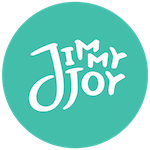


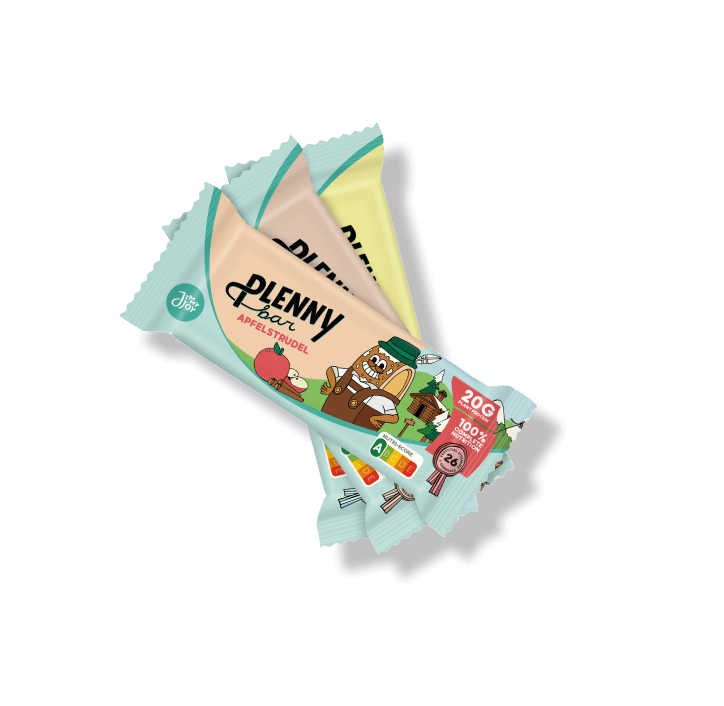
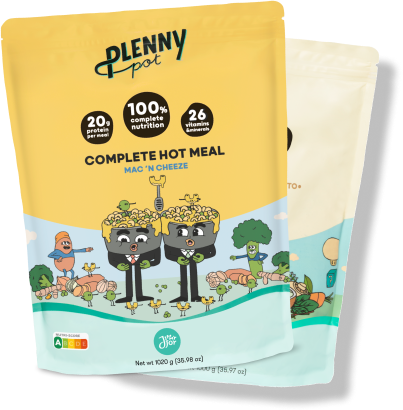

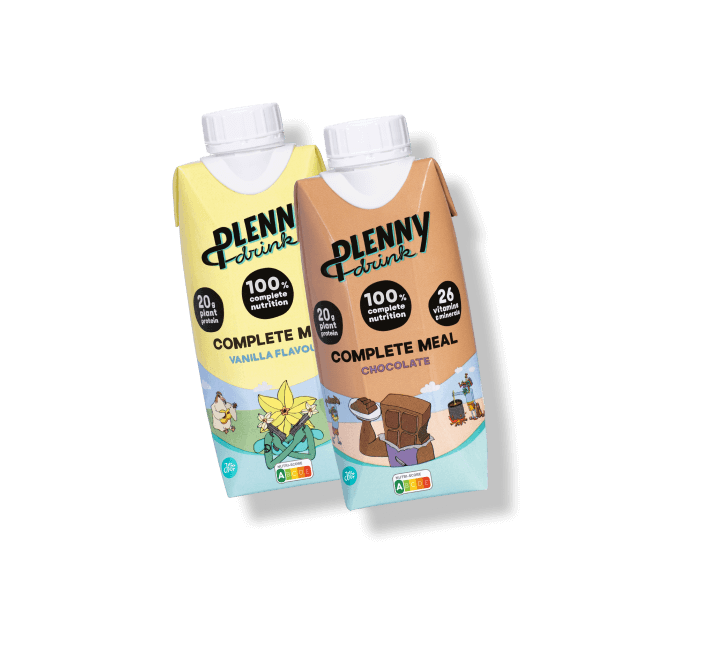
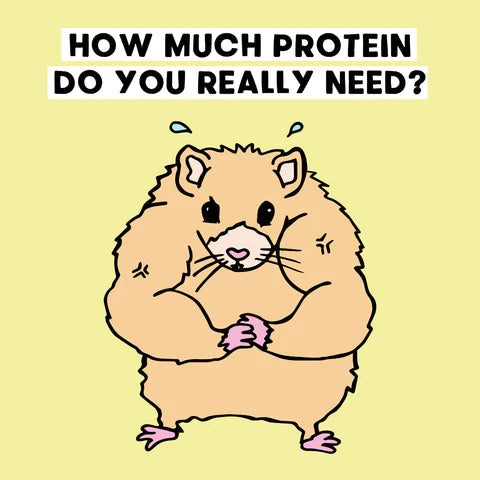

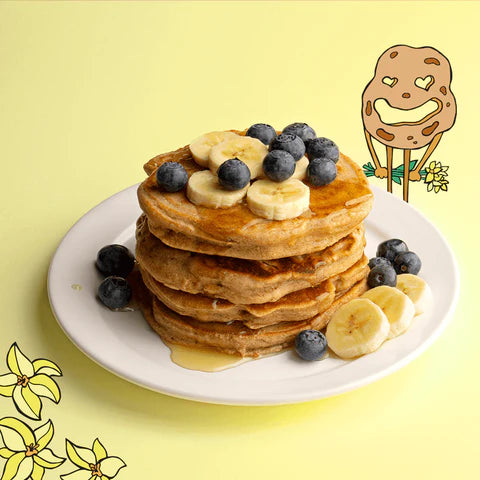


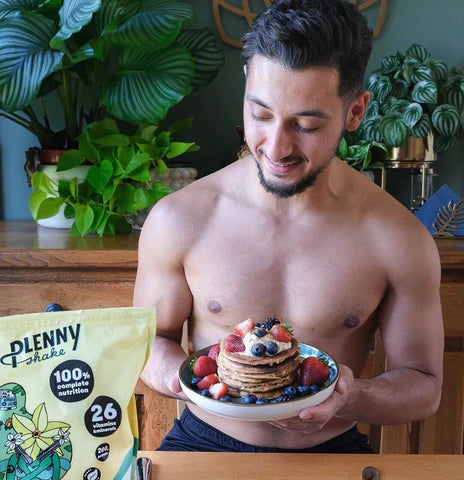
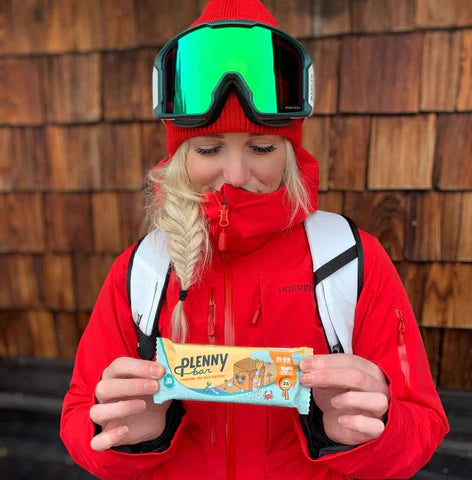
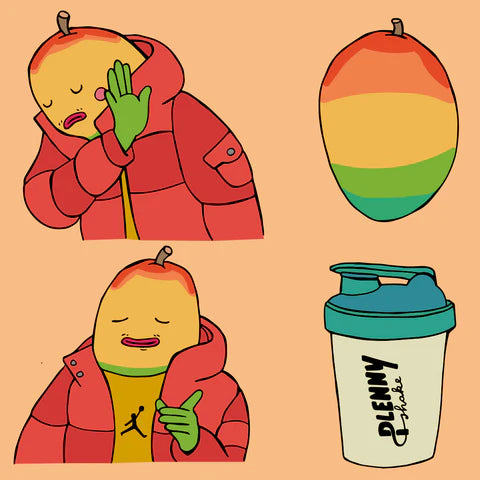
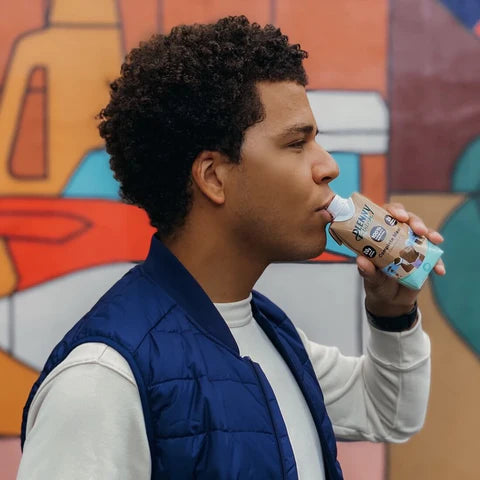
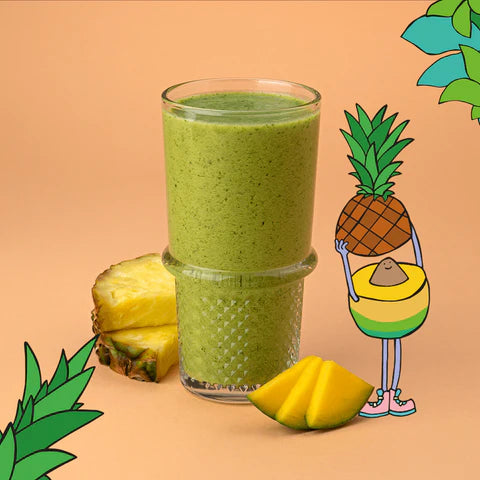

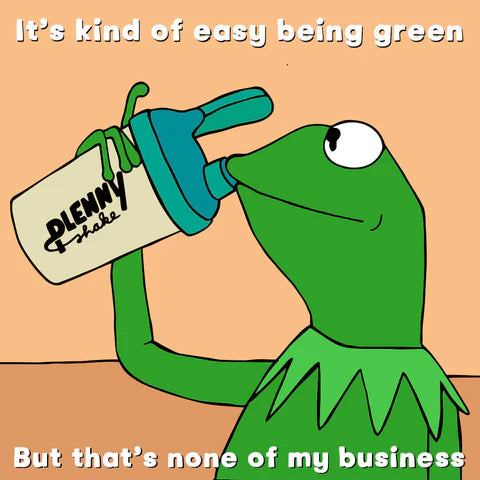
 Product added to cart
Product added to cart



